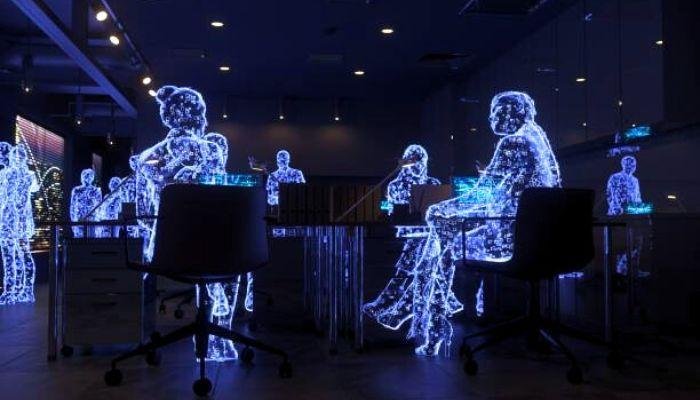In the rush toward digital transformation, artificial intelligence, and automation, many organisations are placing their hopes in technology to drive growth, efficiency, and innovation. New platforms promise faster hiring. AI tools promise better decision-making. Robotic processes promise leaner operations. Yet, the ancient wisdom of the African proverb remains true: even the finest cooking pot, by itself, cannot produce a meal. Without capable, inspired people to wield the tools, technology is an empty vessel.
“But technology can only amplify what already exists; it cannot substitute for vision, leadership, or human connection.”
The workplace is at a historic crossroads. Tools are becoming exponentially more powerful. But the organisations that will thrive are not necessarily those with the most tools—they are those with the best people using them well. Talent, not technology, remains the irreplaceable ingredient of success.
“Even the best cooking pot will not produce food.” — African Proverb
The Nigerian business landscape reflects this tension vividly. Companies across sectors are investing heavily in digital platforms—HR tech, customer relationship management systems, and supply chain automation. Yet many of these investments underdeliver, not because the tools are flawed, but because the people tasked with using them are underprepared, unsupported, or disconnected from strategy.
In human resources particularly, there is a growing temptation to treat technology as a panacea. Recruitment software is expected to solve talent shortages. Learning management systems are expected to replace mentorship. Performance management apps are expected to drive engagement. But technology can only amplify what already exists; it cannot substitute for vision, leadership, or human connection.
Consider the proliferation of HR analytics platforms. In theory, they provide predictive insights on retention risks, training needs, and succession gaps. In practice, without HR professionals who understand data interpretation, storytelling, and ethical decision-making, these tools often generate dashboards that gather dust rather than drive action.
Similarly, AI-based recruitment platforms promise to eliminate bias and speed up hiring. But without recruiters who understand context, culture fit, and potential beyond the CV, these systems risk automating exclusion rather than promoting inclusion.
Upskilling is, therefore, not an option—it is an imperative. Organisations must invest in building digital literacy across their workforce. But more than that, they must invest in cultivating critical thinking, creativity, empathy, and collaboration—the very human skills that technology cannot replicate.
The World Economic Forum’s Future of Jobs Report repeatedly ranks skills such as problem-solving, resilience, active learning, and leadership among the most valuable for the coming decade. Nigeria’s employers must heed this call. Relying solely on imported platforms or off-the-shelf solutions without investing in people is a recipe for fragile growth.
Moreover, technology must serve strategy, not dictate it. Organisations must start with clear human-centred goals—improving customer experience, empowering employees, and expanding access—and then select tools that align with these goals. Technology for technology’s sake creates noise, not progress.
Leadership also plays a pivotal role. Leaders must model digital curiosity and lifelong learning. It is not enough for CEOs to mandate digital adoption. They must personally engage with new tools, encourage experimentation, and destigmatise failure. Change is cultural before it is technical.
In high-performing global companies, technology and talent are integrated symbiotically. Microsoft’s success, for instance, under Satya Nadella’s leadership, was not driven solely by new products but by a cultural transformation that emphasised growth mindset, collaboration, and empathy. The tools evolved because the people evolved.
Read also: SeamlessHR drives digitalisation of workforce management to enhance performance
Locally, Nigeria’s tech startups offer similar lessons. Firms like Paystack, Flutterwave, and Andela did not succeed merely because they adopted technology—they succeeded because they built cultures of learning, agility, and user obsession. Technology was a lever, not the engine.
The future of HR must embrace this ethos. Strategic HR is not about automating away human complexity. It is about enhancing human capacity. Talent acquisition must combine data with discernment. Learning and development must blend digital modules with real-world coaching. Employee experience must integrate self-service apps with meaningful human interactions.
Equally important, HR must champion digital equity. As remote work and virtual collaboration become mainstream, organisations must ensure that all employees—not just those in urban hubs—have access to the tools, training, and opportunities they need. Digital divides, if left unaddressed, will exacerbate inequality within the workforce.
Technology can and should make work better—more efficient, more inclusive, and more creative. But it can only do so if anchored in human capability and values. A new performance management system will not fix a culture that avoids feedback. A new onboarding app will not inspire loyalty if employees are treated as disposable. A recruitment chatbot will not recognise the raw potential of a candidate who does not fit traditional profiles.
Organisations must remember that the cooking pot, no matter how advanced, cannot generate a meal without the cook’s skill, intuition, and care. In the same way, digital transformation without talent development is hollow.
The African proverb reminds us that tools are only as valuable as the hands that wield them and the minds that direct them. Nigeria’s future—its competitiveness, resilience, and prosperity—depends not just on how many new systems we adopt but on how deeply we invest in the human beings who bring those systems to life.
The future of work is human. Technology is the vessel. Talent is the fire.
Dr Olufemi Ogunlowo is CEO of Strategic Outsourcing Limited and writes on the intersection of technology, talent management, and organisational transformation for BusinessDay.

